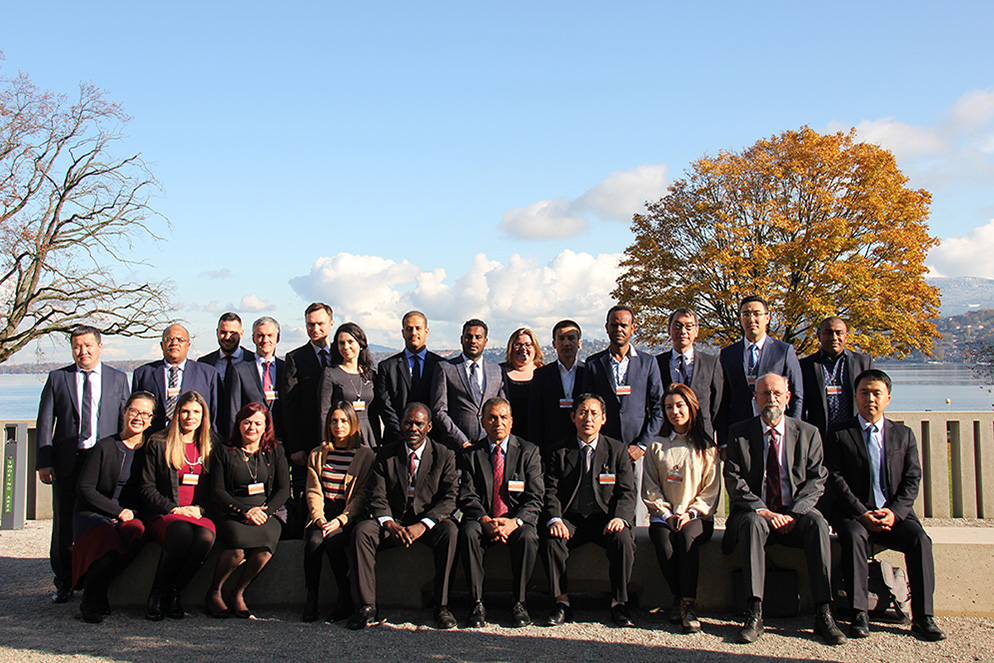ACCESSIONS
More
The main objective of the training course is to enhance understanding of the practical aspects of bilateral market access negotiations on goods as well as the technical aspects of developing schedules of commitments for goods. Participants will be trained on the theoretical underpinnings of this area of activity and will take part in practical exercises, including a two-day simulation exercise on market access negotiations.
Since the founding of the WTO in 1995, 36 new members have completed their accession processes under Article XII of the Marrakesh Agreement Establishing the WTO, bringing the WTO's membership to 164. Another 22 governments are currently in the process of pursuing negotiations to join the WTO. The recently acceded governments as well as the currently acceding governments come from a diverse range of political, geographic, economic and cultural backgrounds.
“This demonstrates that the WTO membership and with it, its rights and obligations, offer benefits that clearly outweigh the adjustments efforts required to join the WTO. WTO accession is essentially an instrument of domestic reforms,” DDG Yi said. “Applying for WTO membership signals the readiness of a government to undertake deep reforms; it can be a mechanism to intensify and accelerate domestic structural reforms beyond simple trade policy.”
DDG Yi stressed that, overall, Article XII members have consistently registered rapid trade growth above the world average. From 1995 to 2017, the nominal value of trade in merchandise goods and commercial services of Article XII members increased by 686% and 687%, respectively. This is faster than the increase in the nominal value of global trade in goods and services, which in comparison has increased by 242% and 337%, respectively.
DDG Yi added: “When a new country goes through the process of integrating into the multilateral trading system, we see tariffs lowered, market access increased and the principles of non-discrimination, transparency and predictability extended. The multilateral trading system benefits from each completed accession, as it is the WTO's objective to achieve universality in terms of its membership.” Read his full speech here.
The course is also aimed at enhancing the governments' ability and confidence to engage in the accession process on the basis of better information, more transparency and improved technical skills. In addition, the training will allow for interaction not only between participants but also with their negotiating partners and recently acceded members.
Eleven acceding governments (Algeria, Azerbaijan, Belarus, Bhutan, Bosnia and Herzegovina, Comoros, Ethiopia, Serbia, South Sudan, Sudan and Uzbekistan) are represented in the course by 17 government officials who have travelled to Geneva with funding by the WTO. In addition, the training is being attended by three representatives from WTO members' permanent missions in Geneva (China, Kyrgyz Republic and Yemen) and one other participant from an acceding government (Lebanon).
List of participants
Ms. Fadila AIT BELKACEM (Algeria)
Ms. Firangiz ASADOVA (Azerbaijan)
Ms. Natallia PAULOUSKAYA (Belarus)
Mr Igor PILIPENKO (Belarus)
Mr Dzmitry SEMIANOVICH (Belarus)
Mr Jigme DORJI (Bhutan)
Mr Loknath CHAPAGAI (Bhutan)
Mr Faruk HADZIOMEROVIC (Bosnia and Herzegovina)
Mr Jiankai JIN (China)
Mr Hamidouni MAKINIDINE (Comoros)
Mr Tages Mulugeta DEGU (Ethiopia)
Mr Eyasu Simeon MASSEBO (Ethiopia)
Mr Nurbek MAKSUTOV (Kyrgyz Republic)
Ms Sara NASR (Lebanon)
Mrs Vera PAVLOVIC-MARJANOVIC (Serbia)
Mr Peter Mazedi Nathan NZARASA (South Sudan)
Mr Mohammed Elbadr ELSINNARI (Sudan)
Mr Iskandar TURSUNOV (Uzbekistan)
Mr Abror ABDUAZIMOV (Uzbekistan)
Mr Hayot ABDUNAZAROV (Uzbekistan)
Mr Mohamed Ali MAJAWAR (Yemen)
Share
Share
Problems viewing this page? If so, please contact [email protected] giving details of the operating system and web browser you are using.
